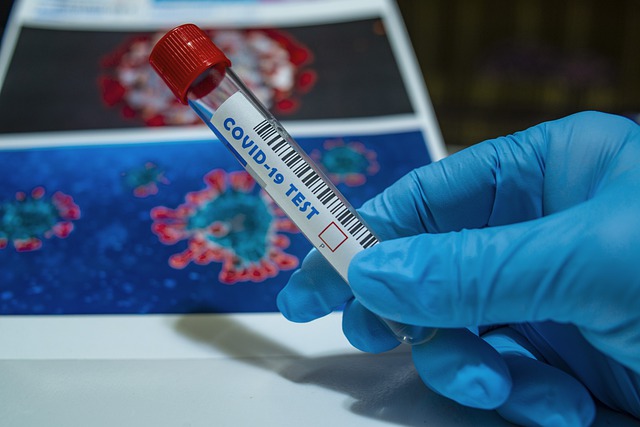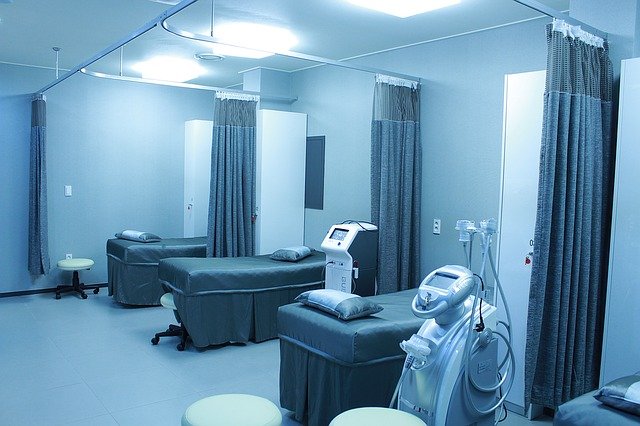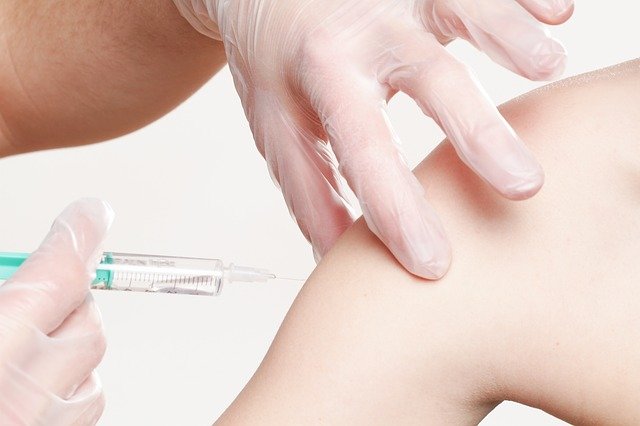Vaccines and Variants
Vaccines and Variants
August 16, 2021
Extensive vaccination had resulted in reduced COVID-19 cases and mortality in certain places, such as the United States and Israel, thus giving a cautious optimism that the worst of the pandemic was over. However, this turned out not to be the case, due to unpredicted factors. One was the appearance of variants of concern, particularly the Delta variant. Another was more relaxed attitudes to viral infection and/or pandemic fatigue. Furthermore, vaccination rates stalled, particularly in the US, and an increased volume of anti-vaccination movement and misinformation on vaccines spread worldwide. All these factors have conspired to generate a new and concerning wave of COVID-19 infections, hospitalizations, and deaths.
 Breakthrough Infection
Breakthrough Infection
Breakthrough infections are rare (CDC figures show 7000 out of 164 million); they are occurring in vaccinated people mostly due to the highly contagious Delta variant. However, infections in vaccinated people are characterized by extremely low hospitalization and death rates, indicating a high vaccine efficacy. The currently pertinent questions are: how effective are the vaccines against viral spread, infection, morbidity, and mortality? What are the reasons for vaccine hesitancy and how may they be overcome? Are the existing vaccine protocols sufficient, or is there a need for booster shots, either of the current vaccines or of vaccines modified to account for current or future variants?
Vaccines and the Delta Variant
What do these latest statistics tell us about efficacy of COVID-19 vaccines against the Delta variant? A recent retrospective study(1) compared the Moderna and Pfizer mRNA vaccines against the Alpha and Delta variants. The authors looked at infections in Minnesota in January 2021, when Alpha was the prevalent genotype, and June 2021, when Delta was predominant. The Moderna vaccine was 86% effective against infection and 92% effective against hospitalization in January. The Pfizer vaccine was 76% and 85% effective for the same parameters. In June, when Delta was 70% prevalent and Alpha had declined to 13%, the Moderna vaccine efficacy remained high (76% against infection, 81% against hospitalization). In case of the Pfizer vaccine, while remaining 75% efficacy against hospitalization, its efficacy dropped to 42% against infection. Fundamentally similar results were obtained from other Mayo Clinic sites in Wisconsin, Arizona, Florida, and Iowa, indicating a 2-fold reduced risk of infection with the Moderna compared to the Pfizer vaccines. A possible confounding factor is what the elapsed time was after vaccination; perhaps the Moderna vaccine is the more durable. Similarly, a study in the United Kingdom found that the Pfizer vaccine and the adenovirus vectored ChAdOx1 (AstraZeneca) vaccine were ~75-80% protective against infection(2). However, a study using pseudovirus assays for neutralizing antibodies from vaccinees who received the Moderna and Pfizer mRNA vaccines versus those who received the Johnson and Johnson (J&J)Ad26-vectored vaccine showed that the former had about 3- to 5-fold reduced potency against the Delta variant(3).
Breakthrough infections are rare (CDC figures show 7000 out of 164 million); they are occurring in vaccinated people mostly due to the highly contagious Delta variant. However, infections in vaccinated people are characterized by extremely low hospitalization and death rates, indicating a high vaccine efficacy.
It is likely that rich countries will begin third dose vaccinations for certain individuals soon. In addition, vaccine companies are developing vaccines against variants of concerns since the emergence of the Alpha and Beta variants. It is possible that COVID-19 vaccines targeting the variants will be available.
Importantly, the protection against hospitalization and death against the Delta variant is much more impressive than the protection against infection. For example, hospitalization of adults aged 65-74 was reduced 96%, 96% and 84% by the Moderna, Pfizer and J&J vaccines, respectively(5). Similarly, among adults older than 74, protection from the three vaccines were 96%, 91%, and 85%, respectively.
The current COVID-19 vaccine regimens are largely protective against serious disease and death, although the duration of this protection is still unknown.
Johnson & Johnson Vaccine
What of the J&J vaccine? One study showed the presence of antibodies adequate to neutralize the Delta variant for up to eight months after vaccination. However, a study using pseudovirus assays of neutralizing antibodies from those who received the Moderna and Pfizer mRNA vaccines versus those who received the J&J Ad26-vectored vaccine showed that the former had about 2.5- to 3-fold reduced potency against the Delta variant(3). However, neutralization by J&J vaccinee sera showed a 5- to 7-fold reduction in relative potency. A study in the United Kingdom show that the Pfizer vaccine was more potent than the ChAdOx1 adenoviral vectored vaccine(4), but both had only modestly reduced neutralizing potency against Delta.
 Vaccine Protection against Hospitalization and Death
Vaccine Protection against Hospitalization and Death
Importantly, the protection against hospitalization and death against the Delta variant is much more impressive than the protection against infection. For example, hospitalization of adults aged 65-74 was reduced 96%, 96% and 84% by the Moderna, Pfizer and J&J vaccines, respectively(5). Similarly, among adults older than 74, protection from the three vaccines were 96%, 91%, and 85%, respectively. These data were collected before Delta became predominant. However, in Scotland at a time when the Delta variant was predominant, the Pfizer vaccine was associated with a hazard ratio for hospitalization of 0.38(2). And, as mentioned above, in Minnesota, the Moderna vaccine showed 92% protection from hospitalization(1). In the United States, vaccination was 98% effective in preventing death prior to the predominance of Delta(6). In Israel, vaccination with the Pfizer vaccine was reported to be 97% protective, but fell to 93% due to the spread of the Delta variant. Although these conclusions may change with time, vaccination currently provides protection from severe diseases and deaths against the Delta variant.
Spread via Vaccinated People
Are vaccinated people who get re-infected able to spread the virus to other vaccinated people? The answer appears to be yes, particularly for the Delta variant, although it is likely that they are infectious for a shorter time and are more likely able to infect unvaccinated than vaccinated people. A recent outbreak in Barnstable, MA involved 469 cases, of which 74% were in vaccinated persons(7), making it likely that some of the spread was from vaccinees to vaccinees. However, we still need more supporting data to see the efficacy of different vaccines for preventing transmissibility of the Delta variant.
 Booster Shots
Booster Shots
With spread of the Delta variant and a surge of COVID-19 cases, the requirement of a booster vaccination has been evaluated. Israel approved a third dose of vaccination to those over 50 years old. Some other Western countries are also considering a third vaccination. The US FDA recently approved a third dose vaccination for immunocompromised people. It is likely that rich countries will begin third dose vaccinations for certain individuals soon. In addition, vaccine companies are developing vaccines against variants of concerns since the emergence of the Alpha and Beta variants. It is possible that COVID-19 vaccines targeting the variants will be available. However, this will require further caution by evaluating immune responses after a serial exposure to different spike proteins.
Vaccine Hesitancy
Vaccinations for currently unvaccinated people are more of a problem. First, getting vaccines to underdeveloped countries has lagged considerably. The problems with vaccine equity have been an obstacle for global vaccination. In addition, highly effective mRNA vaccines are probably not appropriate for resource-poor settings due to their stability issues. The other major problem in developed countries is suspicion of vaccines, or vaccine hesitancy. This is mostly because of widespread misinformation. Several examples are: the vaccine will change your DNA; it’s not a vaccine, it’s gene therapy; and the vaccine includes a chip that will allow the government to track you. Much of this comes from various social media and other internet sources, a general distrust of government, and political polarization. One of the significant sources of distrust is because the FDA has only approved the vaccines for emergency use, although the Pfizer vaccine is nearing full approval. Their sense is that the vaccines have not been fully tested, although the data from the Phase 3 trials and the real-world vaccinations were quite convincing in proving their efficacy. Full approval of the vaccines may help overcome this vaccine hesitancy. Mostly because of unvaccinated people, policies of vaccine mandates and passports have been implemented in certain places, such as private business and school settings, to protect their employees and the public. Routine testing for COVID-19 is required for unvaccinated people.
Conclusion
The current COVID-19 vaccine regimens are largely protective against serious disease and death, although the duration of this protection is still unknown. The current situation of the ongoing pandemic makes it clear that the goal of vaccination is not preventing the viral infection. Certainly, the eradication of the virus is not realistic, and SARS-CoV-2 will likely continuously circulate in the population. To end this pandemic, it is urgent to vaccinate as many people as possible to minimize hospitalizations, deaths, and the emergence of new variants. We will eventually need to establish logistics for booster vaccinations based on proceeding scientific data. This will depend on information on the levels of neutralizing antibodies required for protection and other correlates of protection, duration of vaccine-induced immunity, and individuals and timing required for a booster.
- A. Puranik et al., Comparison of two highly-effective mRNA vaccines for COVID-19 during periods of Alpha and Delta variant prevalence. medRxiv, 2021.2008.2006.21261707 (2021).
- A. Sheikh et al., SARS-CoV-2 Delta VOC in Scotland: demographics, risk of hospital admission, and vaccine effectiveness. Lancet 397, 2461-2462 (2021).
- T. Tada et al., Comparison of Neutralizing Antibody Titers Elicited by mRNA and Adenoviral Vector Vaccine against SARS-CoV-2 Variants. bioRxiv, 2021.2007.2019.452771 (2021).
- J. L. Bernal et al., Effectiveness of COVID-19 vaccines against the B.1.617.2 variant. medRxiv, 2021.2005.2022.21257658 (2021).
- H. L. Moline et al., Effectiveness of COVID-19 Vaccines in Preventing Hospitalization Among Adults Aged >/=65 Years – COVID-NET, 13 States, February-April 2021. MMWR Morb Mortal Wkly Rep 70, 1088-1093 (2021).
- F. S. Vahidy et al., Real World Effectiveness of COVID-19 mRNA Vaccines against Hospitalizations and Deaths in the United States. medRxiv, 2021.2004.2021.21255873 (2021).
- C. M. Brown et al., Outbreak of SARS-CoV-2 Infections, Including COVID-19 Vaccine Breakthrough Infections, Associated with Large Public Gatherings – Barnstable County, Massachusetts, July 2021. MMWR Morb Mortal Wkly Rep 70, 1059-1062 (2021).
